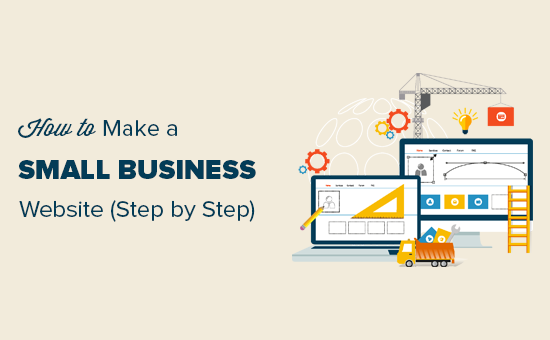
Starting a company is exciting—but it is also one of the most challenging journeys you can ever take. Many new founders often believe that having a great idea is enough to succeed. But in reality, ideas are only the beginning. To build, grow, and sustain a startup—whether in technology, healthcare, retail, finance, or any other industry—you need a set of core skills that empower you to manage people, money, operations, and growth.
In this article, we’ll explore the must-have skills every entrepreneur should learn to run a startup successfully. Whether you’re planning to build an app, start an eCommerce business, open a consulting firm, or launch a manufacturing unit, these skills apply to any sector, any category, and any business model.
Why Skills Matter More Than Just Ideas
Ideas are plentiful, but execution is rare. According to global startup reports, more than 90% of startups fail, often not because of bad ideas but because founders lacked the right skills in leadership, financial planning, marketing, and adaptability.
When you, as an entrepreneur, develop the right mindset and skill set, you dramatically increase your chances of surviving and scaling your startup.
Essential Skills Required to Run a Startup Company
1. Leadership and Vision
A founder is not just a business owner; they are a leader who sets the direction of the company.
- Ability to inspire and motivate your team.
- Building and communicating a clear vision and mission.
- Making tough decisions during uncertainty.
Tip: Practice storytelling—because people don’t just buy products, they buy into a vision.
2. Financial Management Skills
Money is the lifeblood of any startup. Without financial discipline, even the best ideas fail.
- Understanding cash flow, profit & loss, and balance sheets.
- Budgeting and managing operational expenses.
- Learning how to raise funds, manage investors, and reinvest wisely.
Even if you hire an accountant, you must understand numbers to avoid mistakes.
3. Strategic Planning and Business Development
A startup without a strategy is like a ship without a compass.
- Setting short-term and long-term goals.
- Identifying opportunities for partnerships, collaborations, and growth.
- Building a scalable business model that works in different market conditions.
4. Marketing and Branding Skills
No matter how good your product is, it won’t sell unless people know about it.
- Learning digital marketing basics (SEO, social media, ads, content marketing).
- Understanding customer behavior and psychology.
- Building a brand identity that resonates with your audience.
Marketing isn’t just about selling—it’s about building trust.
5. Sales Skills
As a founder, your first job is to sell—sell your idea to investors, your product to customers, and your vision to employees.
- Pitching and negotiation techniques.
- Closing deals and managing customer objections.
- Building long-term customer relationships.
6. Networking and Communication
Startups grow faster when founders build strong networks.
- Clear communication skills (writing, speaking, and presenting).
- Building connections with mentors, investors, and peers.
- Learning how to collaborate and influence people.
7. Adaptability and Problem-Solving
The startup journey is unpredictable—you need to adapt quickly.
- Handling failures and pivoting when needed.
- Creative thinking to solve unexpected challenges.
- Staying calm under pressure.
8. Time Management and Productivity
In a startup, you will wear multiple hats. Managing time is critical.
- Prioritizing important tasks over busy work.
- Learning delegation to avoid burnout.
- Using productivity tools (like Trello, Notion, or Asana).
9. Technology and Digital Skills
In today’s world, every startup—regardless of industry—relies on technology.
- Basic understanding of websites, apps, and automation tools.
- Using data and analytics for decision-making.
- Staying updated on AI, digital tools, and industry-specific technologies.
10. Human Resource and Team-Building Skills
Your startup is only as strong as your team.
- Hiring the right people.
- Building a positive company culture.
- Managing conflicts and motivating employees.
11. Legal and Compliance Knowledge
Startups often fail due to legal mistakes.
- Understanding business registration, taxes, and compliance.
- Knowing about contracts, intellectual property, and data protection laws.
- Staying updated on government policies for startups (like Startup India, MCA compliance in India).
12. Emotional Intelligence (EQ)
Business is about people, and people are emotional.
- Managing stress and staying mentally strong.
- Handling relationships with empathy.
- Leading with emotional balance, not just logic.
Things Every Founder Must Learn Along the Journey
Running a startup is not about mastering everything before you start—it’s about learning continuously. Here are the things to focus on:
- How to validate your idea before investing big money.
- How to talk to customers and solve their real problems.
- How to manage a small team and grow gradually.
- How to adapt to market shifts without losing focus.
- How to build resilience because rejection and failure are part of the journey.
Final Thoughts: Skills Make Startups Successful
No matter what industry you choose—tech, health, food, fashion, or finance—the skills listed above are universal. You don’t need to be perfect in all of them, but you must have a working knowledge and the ability to learn fast.
A startup is not built overnight—it is built step by step, decision by decision, and skill by skill. The more you invest in yourself, the better your company will grow.
So, if you are planning to start your own company, focus not just on your idea, but on building the right skills to execute it successfully.






